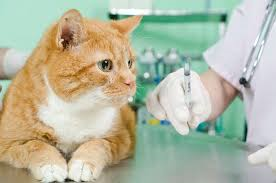
When your dog is suffering from vomiting or diarrhoea it is always cause for concern, but when blood is included in the vomited material or stool then you should certainly be alarmed and treat it is an animal emergency. Bloody diarrhoea and vomiting can often be a sign of Haemorrhagic Gastroenteritis, which is an acute disorder that can lead to your pet becoming seriously ill or even dying.
The exact cause of Haemorrhagic Gastroenteritis remains unknown, making the diagnosis challenging and often requiring intestinal biopsies for persistent cases. However, it is known to be most common in small breed dogs. Some possible causes of Haemorrhagic Gastroenteritis include change of diet, stress, intestinal obstruction, foreign bodies, trauma, gastrointestinal tumours and infectious diseases (such as canine parvovirus infection and coagulation disorders).
When testing for Haemorrhagic Gastroenteritis, evaluation requires a wide range of tests and procedures to determine the cause and the best treatment plan. This includes taking a complete blood count, biochemical analysis of the blood, urinalysis, x-rays, coagulation tests, faecal evaluation, as well as ultrasound or endoscopic examination of the gastrointestinal tract.
Dogs that are suffering from Haemorrhagic Gastroenteritis will appear severely ill and need to be treated by an experienced emergency vet or they may die. In most cases that are treated, the disorder appears to run its course within a few days, providing the dog is given the appropriate medical care. Haemorrhagic Gastroenteritis causes stomach and/or intestinal ulcers that result in bleeding into the gut and severe dehydration. Therefore, the main treatment involves intravenous fluid therapy to correct their dehydration and circulatory shock. Other treatments include anti-nausea medications, gut protectant medications and pain relief.
Treatment usually requires the dog to be in an animal emergency hospital for between 2-4 days, so the appropriate medications can be administered and they can be closely monitored. Except for very severe cases that involve sepsis and blood clotting problems, the majority of cases that are treated intensively make a full recovery.
Melbourne pet owners should contact an emergency veterinarian at a 24 hour animal emergency centre if they ever observe blood in their dog’s stool or vomit, if vomiting or diarrhoea persists beyond six to twelve hours, if their dog is trying to vomit but unable to bring up anything, or if their pet becomes quiet, lethargic or weak. Other things to consider are if your dog is less than 6 months of age or older than 10 years, has any other medical conditions or on any medications, or if they may have eaten a foreign object.
In case of suspected Haemorrhagic Gastroenteritis or any emergency, please phone Animal Accident & Emergency at either of our 24 hour animal emergency centres. Our clinics operate 24 hours a day, 365 days a year (including public holidays), and offer all the latest state-of-the-art equipment, as well as a 24-hour intensive care unit. Our dedicated team of emergency vets and nurses provide the highest standards of emergency and critical care medicine and surgery available, so you can be assured your pet will always receive the best treatment possible.
Essendon Fields (03) 9379 0700
Point Cook (03) 8368 7400
We’re Always Open, We Always CARE

www.animalemergency.com.au




